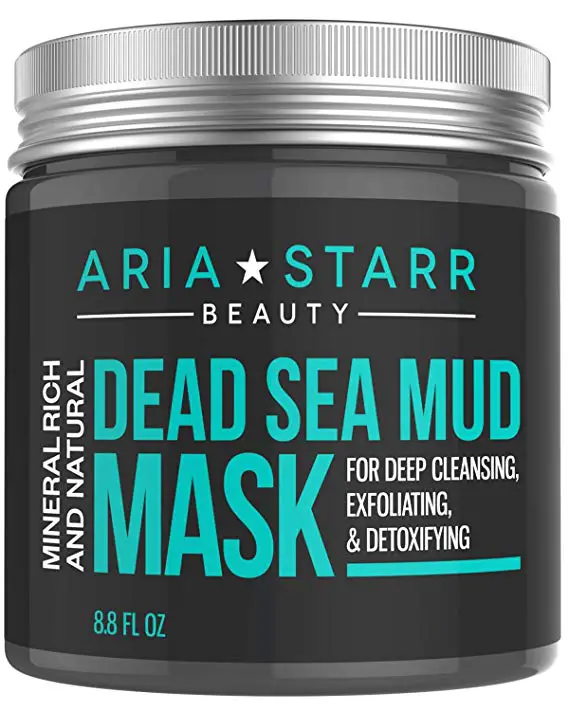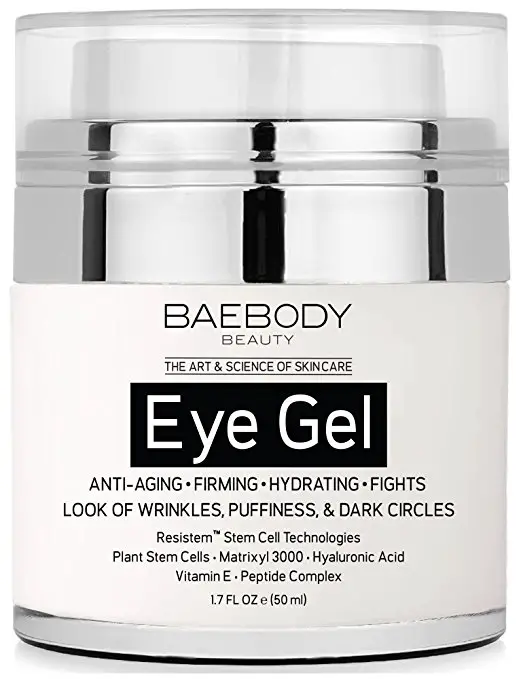The process of exfoliating your skin can be quite tricky if your skin is sensitive. This is because it may cause irritation if the wrong skincare product is used or the right one is improperly applied. Hence, it’s very important to know how to exfoliate sensitive skin.

Contrary to popular belief, baking soda is not good for exfoliating sensitive skin. This is because it is alkaline in nature and will damage the barrier protecting the skin.
Table of Contents
How to Exfoliate Sensitive Skin – What to Know Before Exfoliating
The following are some of the things to know before you exfoliate sensitive skin:
- How your skin reacts
- How often to exfoliate
- What type of exfoliator to use
It is important to note here that these points intertwine. So let us explain them.
If you have sensitive skin, pay close attention to the manner in which your skin reacts. For example, if your skin turns red and blotchy, it means that you have been rubbing it very often or too hard.
For a start, use your exfoliator once a week. Then, you can make it twice if you think your skin can cope with such.
While physical exfoliators tend to cause irritation, chemical or natural remedies can get the job done.
How to Exfoliate Sensitive Skin – Natural Ingredients
Using natural ingredients can be a great way to exfoliate your skin. This method is faster, cheaper and cleaner than other ways.
Here are some of the ingredients you can use:
- Sugar
- Salt
- Oats
Sugar
Why is sugar good for exfoliating sensitive skin?
Sugar is a humectant that promotes the retention of moisture. Using products containing sugar will help to keep moisture in your skin locked in.
Sugar also has glycolic acid, which is an active ingredient in alpha-hydroxy acid creams. Due to these, it is less likely to irritate sensitive skin.
Salt
Even though salt tends to be coarser than sugar, it’s still a great means of removing dead skin.
Using a little salt on your skin in a circular motion will help in freeing pores and getting rid of worn-out or dead skin cells.
Oats
Why are oats ideal for exfoliating sensitive skin?
Oats are ideal for sensitive skin because they are not as abrasive as sugar and salt. They offer a soothing effect on the skin and heal sunburn. You just have to grind it, mix with water, and apply the paste on your skin.
Check out these interesting skincare product reviews/articles:
Clean & Clear Blackhead Eraser Facial Scrub – Extensive Review
Bioré Charcoal Acne Scrub – Honest Review
Humane Acne Treatment Face and Body Wash – Honest Review
Neutrogena Naturals Purifying Daily Facial Cleanser – Detailed Review
Clearasil Gentle Prevention Daily Clean Wash – Detailed Review
How to Prevent Loose Skin after Gastric Bypass – In-depth Answer
How to Exfoliate Sensitive Skin – Physical Exfoliation
What does physical exfoliation involve and how suitable is it for sensitive skin?
Physical exfoliation involves the use of scrubs and brushes to take away dead skin. In the long run, it can tear your skin and slowly remove your protective skin barrier. Hence, it is not suitable for many skin types, especially sensitive skin.
How to Exfoliate Sensitive Skin – How Effective Are Chemical Exfoliators?
Chemical exfoliators use mild acids in tearing down the fabric that binds the skin cells together. Once that happens, you will get smoother and fresher skin because new cells will have a chance to grow.
Chemical exfoliators are effective and suitable for different skin types, including sensitive skin, unlike physical exfoliators.
The two types of chemical exfoliators are alpha hydroxy acid (AHA) and beta-hydroxy acid (BHA). The former is best for sensitive skin, while the latter works great on acne-prone and oily skin
Video: How to Correctly Apply Chemical Exfoliators
This video shows how to correctly use chemical exfoliators for you to get the desired results. Check it out…
How to Exfoliate Sensitive Skin – Our Verdict
Exfoliate once a week, at least, using natural ingredients is the safest way of exfoliating sensitive skin. However, with the advice of your doctor, you can also try out chemical exfoliators. Physical exfoliators are harsh on sensitive skin.
How to Exfoliate Sensitive Skin – Frequently Asked Questions
Is Exfoliating Safe for Sensitive Skin?
Exfoliating is safe for sensitive skin. But the type of exfoliator and how often you exfoliate make all the difference.
It is best to use chemical exfoliators or natural methods. And even with these options, you still need to go with mild ones. So choose mild chemical or natural exfoliators for sensitive skin.
Using physical exfoliators like brushes can cause intense redness and irritation. They will only aggravate any skin condition that already exists.
Exfoliate once or twice every week if you have sensitive skin. Anything more than that will wear out the skin.
How Often Should You Exfoliate Sensitive Skin?
Exfoliate once every week if you have sensitive skin. Do it twice every week if you want to push it but not more than that.
While exfoliating the skin is good because it sloughs off dead skin cells to make way for newer skin cells, it can also be damaging. Exfoliating regularly will cause the skin to be inflamed, irritated and red, burning and tingling regularly. It also can speed up the appearance of the signs of aging and leave it exposed to sun damage.
How Can I Exfoliate without Irritating My Skin?
To keep from irritating your skin while exfoliating, you will need to keep away from physical exfoliators. They tend to give the skin little but invisible tears. These tears build up over time to become a more serious skin issue.
Instead, go for natural or chemical exfoliators. Go for salicylic acid or glycolic acid. These are mild exfoliants for the skin and don’t usually cause skin irritation.
You can also use retinol but be aware that retinol makes the skin sensitive to the sun. So if you opt for it, you need to use small amounts and only at night.
How Do You Exfoliate Sensitive Acne-prone Skin?
To exfoliate sensitive acne-prone skin, do not go for abrasive scrubs or cleansers. These are called physical exfoliators. Using any physical exfoliator, no matter how good, will make acne-ridden skin worse. The granules or beads, which are abrasive, will scrape open the skin and cause further inflammation.
Go for chemical exfoliators such as cleansers that contain glycolic acid or salicylic acid. They are milder yet effective on acne. And you must exfoliate only once every week and not more than that. his will give the skin time to recover and not be eroded.
Why Am I Breaking Out after Exfoliating?
One of the reasons you are breaking out after exfoliating is because you used a physical exfoliator. If your skin is already inflamed for whatever reason, using any abrasive ingredient or implement in scrubbing will cause further inflammation.
Another reason you are breaking out is the compatibility of your skin and the product you used. Using a cleanser, face wash or scrub that is wrong for your skin type can lead to a breakout of pimples or acne. Be sure to pick the right exfoliating product for your skin type.
Should I Exfoliate When I Have Pimples?
You can exfoliate when you have pimples and this is even medically advisable. The reason is that exfoliation clears away dead skin cells, oil and other skin impurities that have the ability to obstruct the pores. Obstruction of pores will make pimples worse but when the pores are clean, pimples tend to vanish.
Use mild exfoliators when you have pimples. Choose gentle and hydrating cleansers and face washes with salicylic acid or glycolic acid. Exfoliate once a week so you don’t make the pimples worse.


